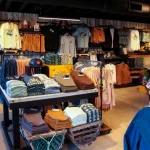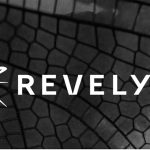
The University of Wisconsin on Friday cut its licensing agreement with Nike Inc. over the non-payment of more than $2 million in severance in the closing of two plants in Honduras. But Nike claims it has a limited obligation to the workers since it only subcontracted apparel production from the factories.
In December, UW Chancellor Biddy Martin in December gave Nike 120 days to rectify the situation involving the layoff of 1,800 employees at the factories, Hugger and Vision Tex, in January 2009. On Friday, she concluded that Nike hadnt done enough.
Wisconsin’s code of conduct requires the 500 companies that make products bearing its name or logos to take responsibility for the subcontractors actions. Its contract with Nike generated $49,000 in royalty income for the university last year. Martin’s decision came after student activists held several rallies on UW’s campus over the situation.
Ms. Martin said, “We remain hopeful that Nike – which has had a positive impact on working conditions in the industry overall over the past several years – will ultimately decide that it is in everyone’s best interest to ensure that the workers receive severance or to establish a meaningful alternative plan.”
In response, Nike said that while it regretted UW’s decision, it sees the factory’s owners, Anvil and New Holland, as responsible for the compensation.
“It remains Nike’s position that factories which directly employ workers are responsible for ensuring that their employees receive their correct entitlements and, as such, Nike will not be paying severance to workers that were employed by Hugger and Vision Tex,” said Nike in a statement. “Hugger and Vision Tex were subcontracted factories to two factories, Anvil and New Holland, that took orders from Nike. Nike paid in full for all products ordered from Anvil and New Holland and we understand that those factories, in turn, paid in full to Vision Tex and Hugger.”
Nike said it is working with Anvil and New Holland in developing job training and placement for the displaced workers.
In conclusion, Nike noted that it was the first company to publicly report the names and locations of all contract factories around the world. Nike said it “takes its commitment to transparency and disclosure seriously” and continually looks for further improvement.
“Nike is upgrading its collegiate factory disclosure processes to increase the frequency in which we report, as well as undertaking a deeper review of our procedures around sub-contracting with the intention of upgrading our level of oversight,” Nike said. “Nike will continue to pursue dialogue about strengthening the apparel sector in Honduras, which is suffering considerably from the global economic downturn. We will continue to advocate for, and participate in, multi-stakeholder efforts to address immediate impacts to affected workers.”
Martin’s decision on Nike means the company has to stop selling UW apparel by June 30. Retailers can still sell any Nike-UW gear in inventory, and the university can reinstate Nike as a licensed apparel seller if the company makes improvements.
Under the Just Pay It slogan, Cornell University, Purdue University and the University of Maryland have also seen campus protests over the Nike Honduras situation. In the Monday edition of New York University’s newspaper, WSN, NYU also indicated it will begin reviewing the matter to determine whether it will cut ties with Nike.
See a comprehensive article in the current edition of Sports Executive Weekly: http:// www.sportsonesource.com/news/sew/sew_main.asp.















